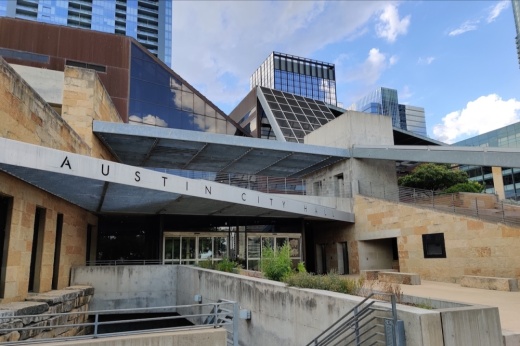The meeting's extensive agenda featured a slate of city contracts, rezoning cases, and other items ranging from real estate to public safety issues. Council is not scheduled to take up regular business again for about a month as officials head into several weeks of budget and tax rate reviews for the coming fiscal year.
Housing bond election likely
With an 8-1-1 vote, officials moved closer to adding a $350 million housing bond proposition onto Austin's November election ballot.
In a move supported by the majority of council, the package amount was increased from the $300 million originally proposed. District 6 Council Member Mackenzie Kelly voted against the motion, and Mayor Pro Tem Alison Alter abstained, stating she will not indicate support for or against the bond until she gathers more constituent input. District 2 Council Member Vanessa Fuentes was not present for the vote but had expressed support for a bond this month.
Based on city staff projections, a $350 million bond would hike the city property tax rate for fiscal year 2022-23 by $0.013 per $100 property valuation, a 2.88% increase. The overall financial effect on a "typical" Austin homeowner—someone living in a home valued at $358,400 after tax exemptions—would be about $46.59 next year, or $3.88 per month.
The city's overall proposed tax rate for FY 2022-23 is $0.4519 per $100 valuation, a decrease from the current $0.541 rate.
A final ordinance calling for a bond election will be considered by council in August.
Homeless service contracts approved
Two city-owned homeless shelters will come under new management this year after council signed off on 13.5-month agreements with a pair of organizations to operate both facilities. The Austin Area Urban League will take over at the city's Southbridge bridge shelter for $4.22 million, while California-based Urban Alchemy will manage the Austin Resource Center for the Homeless for $4.14 million.
The moves were prompted by the exit of longtime service provider Front Steps and generated some discomfort among officials making the decision specifically about the downtown ARCH.
"This is a really bad situation," Mayor Steve Adler said.
City public health officials said Front Steps announced its intention to end its shelter work with about two months left on its current contracts, and Urban Alchemy was the only group to express interest during the city's scramble to find a replacement at the ARCH in time to avoid service interruptions. Council's concerns included the contracting timeline and reporting from California detailing several allegations of misconduct by Urban Alchemy staff working with people experiencing homelessness there.
Urban Alchemy's contract would more than double the $1.83 million annual contract for ARCH operations that was approved for Front Steps last year.
A city spokesperson said the $4.14 million estimate is based on the $3.38 million cost of the previous contract plus $389,548 for an additional six weeks of services and a 10% buffer to cover emergencies or inflation totaling $377,719.
While the contract was approved with Kelly against and Alter abstaining, officials also tacked on several additional requirements for the nonprofit's work at the ARCH. Among those were requirements that shelter staff will wear personal identification on-site; shelter clients will have accessible information about grievance policies at the facility; city management will share frequent reports about the situation at both shelters; and city staff and community stakeholders will develop a longer-range plan for Austin's shelter system.
Officials also requested the new shelter operators try to rehire Front Steps staff if possible.
“It’s not a perfect answer; i’s not a perfect solution; there just aren’t any better alternatives," Adler said.
Downtown tower negotiations continue
Following several delays, negotiations over the development of a new residential high-rise on city-owned land in the eastern downtown Innovation District may continue for at least two more months.
Council agreed to extend the negotiation period between the city and developer Aspen Heights Partners to hash out the final details of the expansive redevelopment of the former HealthSouth property at 1215 Red River St. and 606 E. 12th St. While Aspen Heights was selected as the city's partner on the project—which could include hundreds of affordable housing units and other public amenities—years ago, a final development agreement is still in the works.
Officials spent time discussing the merits of the Aspen Heights plan and the community benefits the project could bring in both private and public with discussions centered on questions about the project's overall potential and affordability.
The negotiating deadline between the developer and city staff has been pushed back twice already this year, and council's 6-4 vote July 28 extended it again to Sept. 30. Alter and Council Members Kathie Tovo, Leslie Pool and Ann Kitchen voted against. Tovo, whose district includes the HealthSouth property, said she believes a fresh start would likely bring about a plan with more affordable housing and that she would favor cutting off negotiations and rebooting the process entirely.





